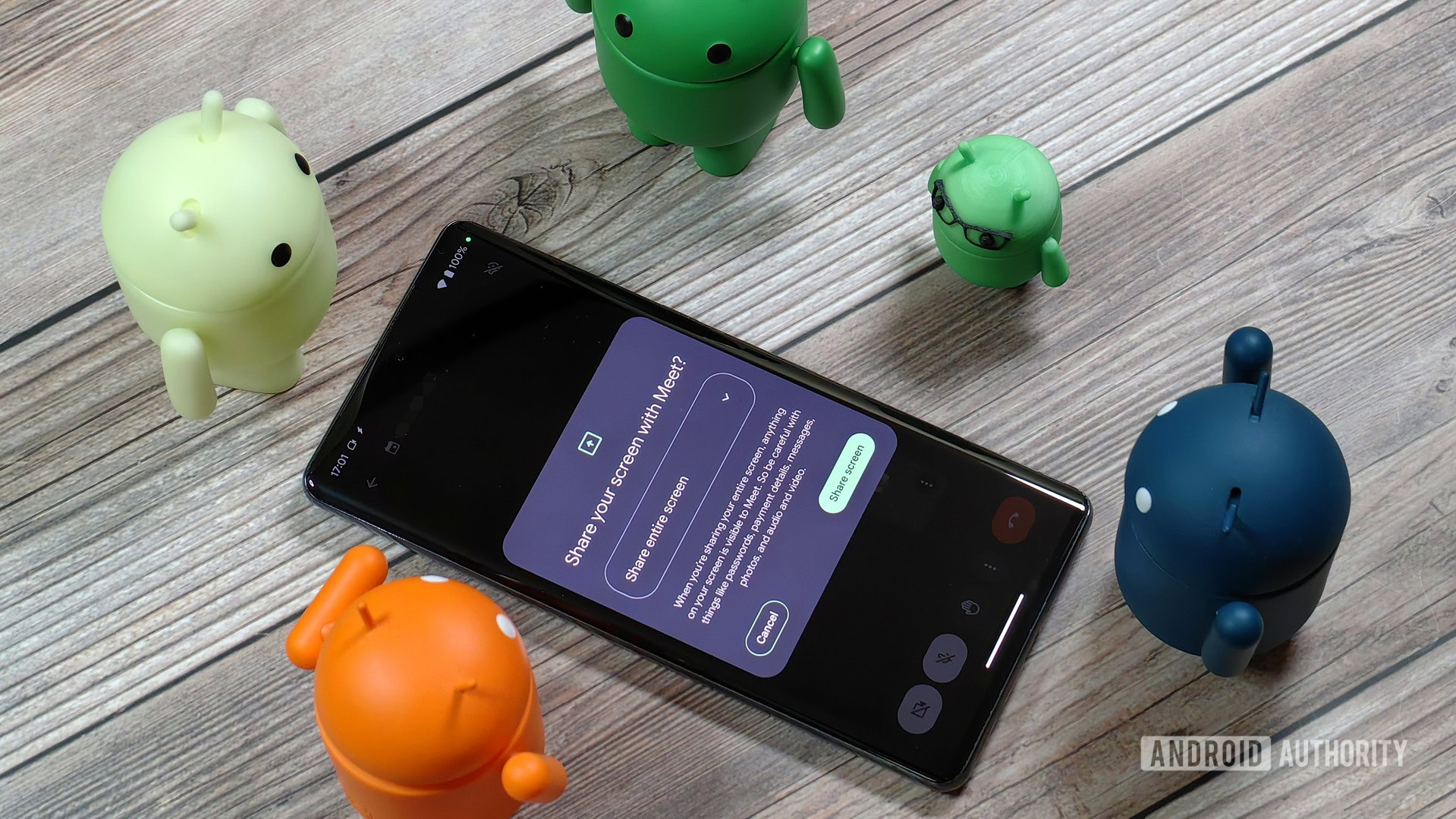
Mishaal Rahman / Android Authority
TL;DR
- Android 15 QPR1 automatically stops screen sharing when the device is locked.
- In previous versions of Android, apps could continue to see the screen even after the device was locked.
- Google is changing this behavior in Android 15 QPR1, which also introduces new status bar chips for screen sharing sessions.
Improving security and privacy was one of Google’s biggest priorities for this year’s Android 15 release, and one of the features that sorely needed updating was Android’s screen recorder. To fix it, Google introduced partial screen sharing in Android 15, a feature that lets you record or cast a single app instead of the entire screen. Google isn’t done with the screen recorder, though, as it plans to update it yet again in the upcoming Android 15 QPR1 release. As part of that update, Google is changing Android so that it’ll automatically stop screen shares when you lock your phone.
You're reading an Authority Insights story. Discover Authority Insights for more exclusive reports, app teardowns, leaks, and in-depth tech coverage you won't find anywhere else.
Last month, Google rolled out Android 15 QPR1 Beta 2, which introduces a much better screen recording system. When you cast or record your screen from the system menu in Android 15 QPR1, you’ll see new status bar chips that not only tell you that a screencasting or screen recording session is ongoing but also how long that session has been going on for. In addition, you can tap those chips to show a dialog that lets you stop casting or recording the screen.
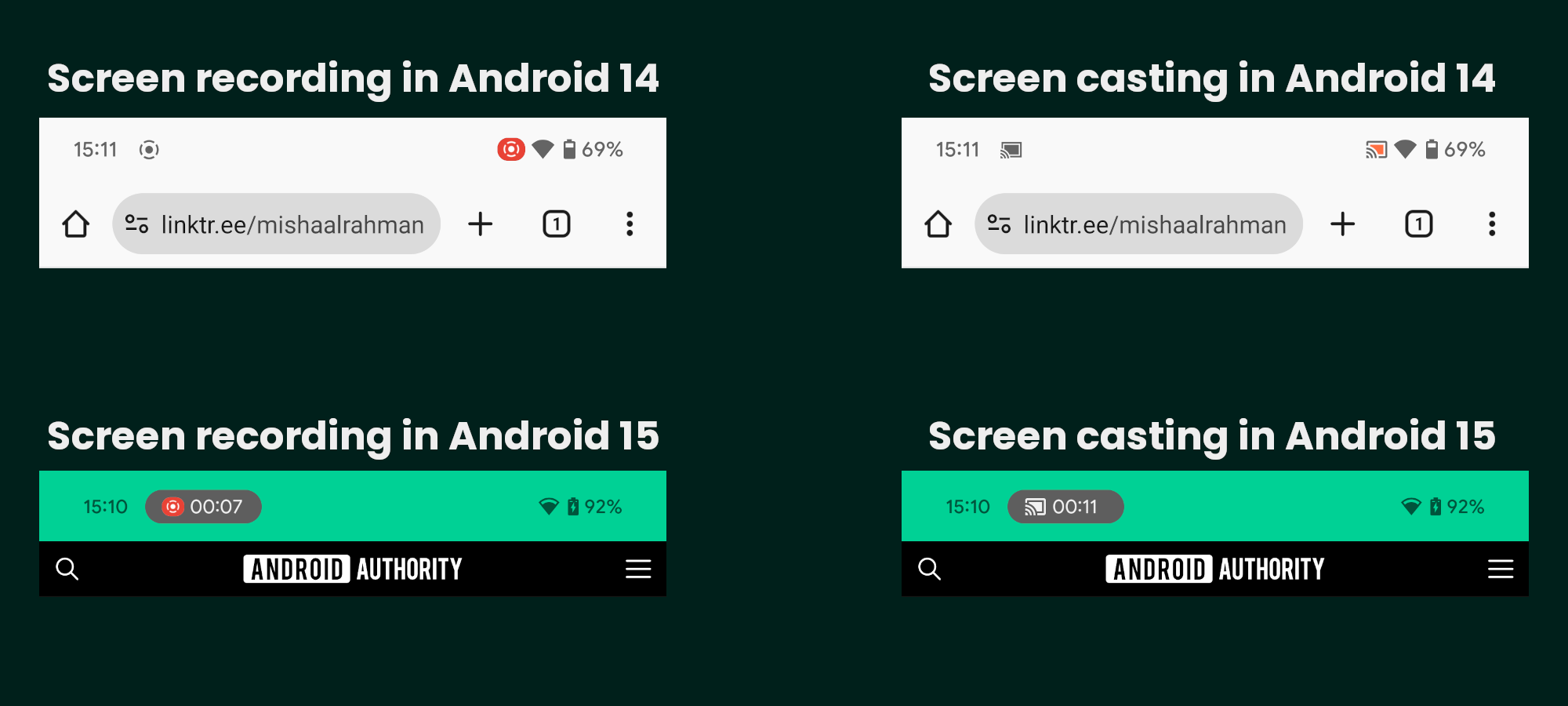
Mishaal Rahman / Android Authority
In addition, Android also now differentiates between screen sharing sessions started by the system versus third-party screen recording apps. When a third-party app initiates a screen sharing session, the screen sharing dialog will have a different icon and description that reflect the fact that you’re sharing the screen with a particular app instead of Android.

Mishaal Rahman / Android Authority
That’s not all, though, as screen shares initiated by third-party apps are now automatically stopped when you lock the device in Android 15 QPR1. In previous versions of Android, this wasn’t the case, as screen shares continued even after you locked the device.
Google recently updated its release notes for Android 15 QPR1 Beta 2 to mention this change, which we can confirm happens on our own Pixel devices. The company encourages developers to update their apps so they release resources and update their UIs when screen projection is stopped. Developers can do this by creating an instance of MediaProjection.Callback and then implementing the callback’s onStop() method which is called when screen projection stops.
Had Google implemented this change in previous versions of Android, it would’ve been a bigger deal, as previous versions didn’t have the new, expandable status bar chips. Since the new screen sharing chips make it possible to end sessions without exposing your notifications, there’s no need to intentionally lock the device to stop the session.
However, I can see how this change could still be useful, as it prevents users from accidentally sharing their home screens if they somehow accidentally lock their device during a screen sharing session (your lock screen is already hidden from screen shares).
Given that this change is part of Android 15 QPR1 and not the base Android 15 release, that means it won’t be available on most other Android devices until next year’s Android 16 update. The same goes for other Android 15 QPR1 features we spotted, such as the new desktop windowing mode and lock screen widgets feature for tablets.
Got a tip? Talk to us! Email our staff at [email protected]. You can stay anonymous or get credit for the info, it's your choice.

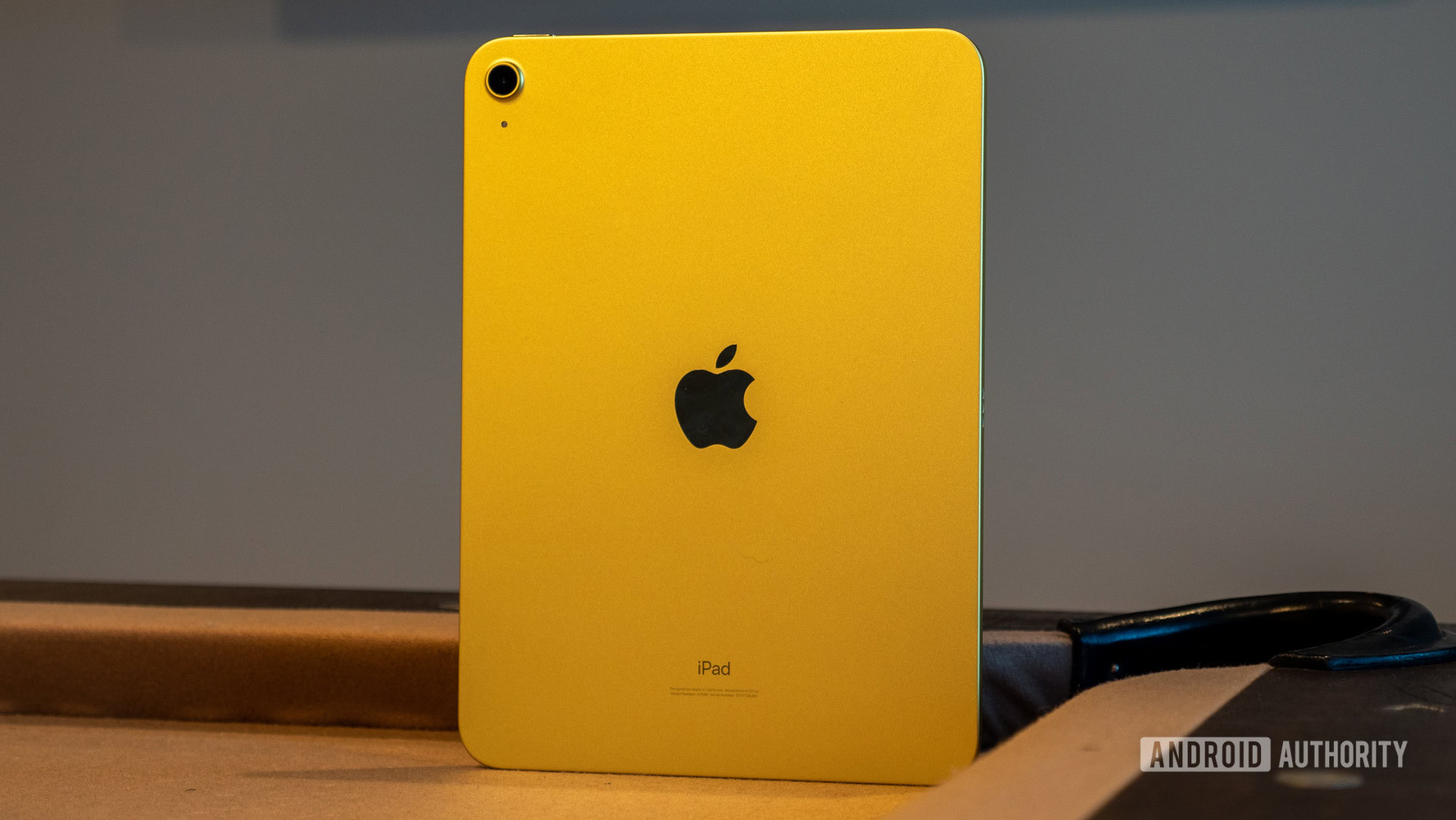
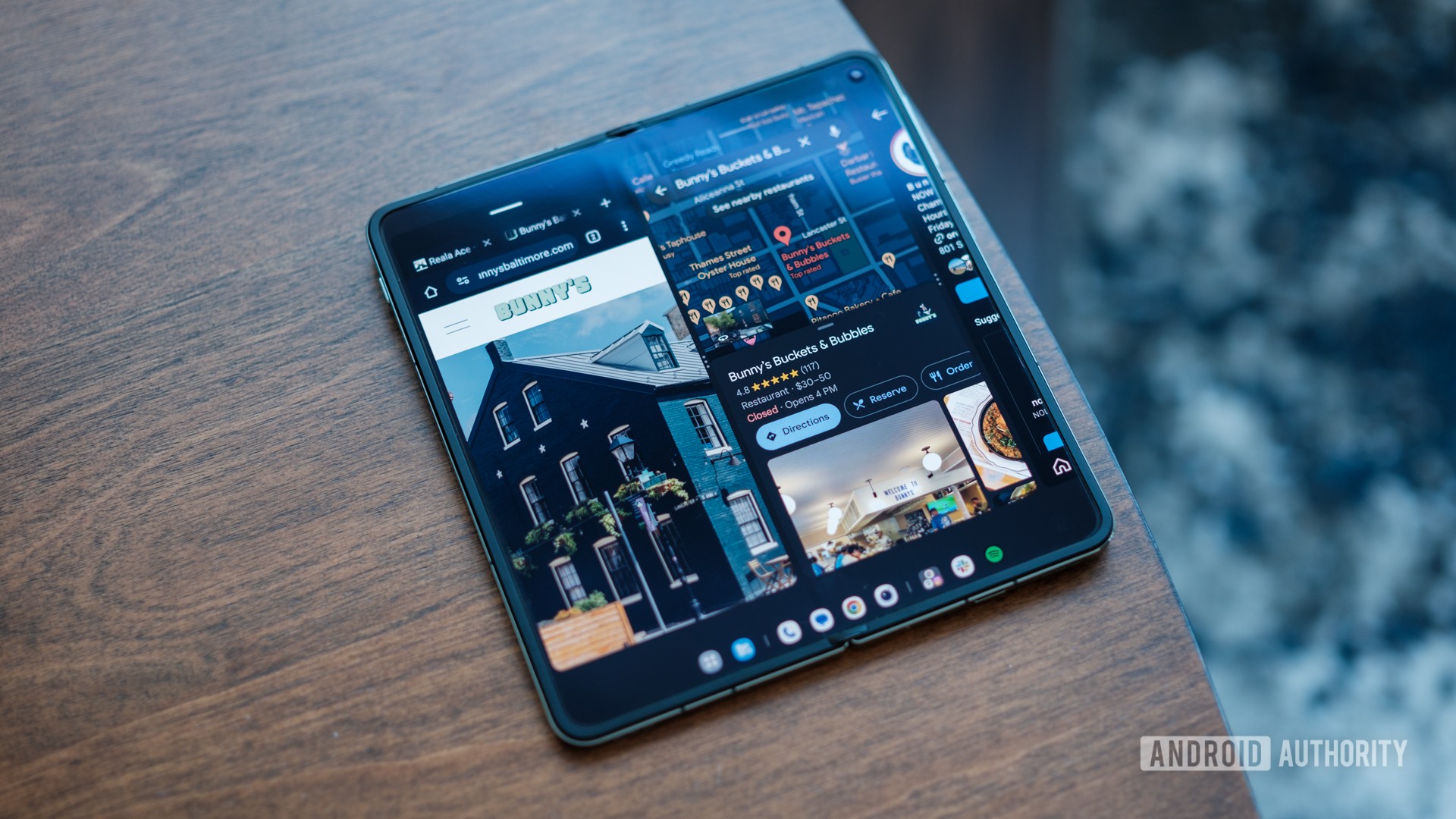
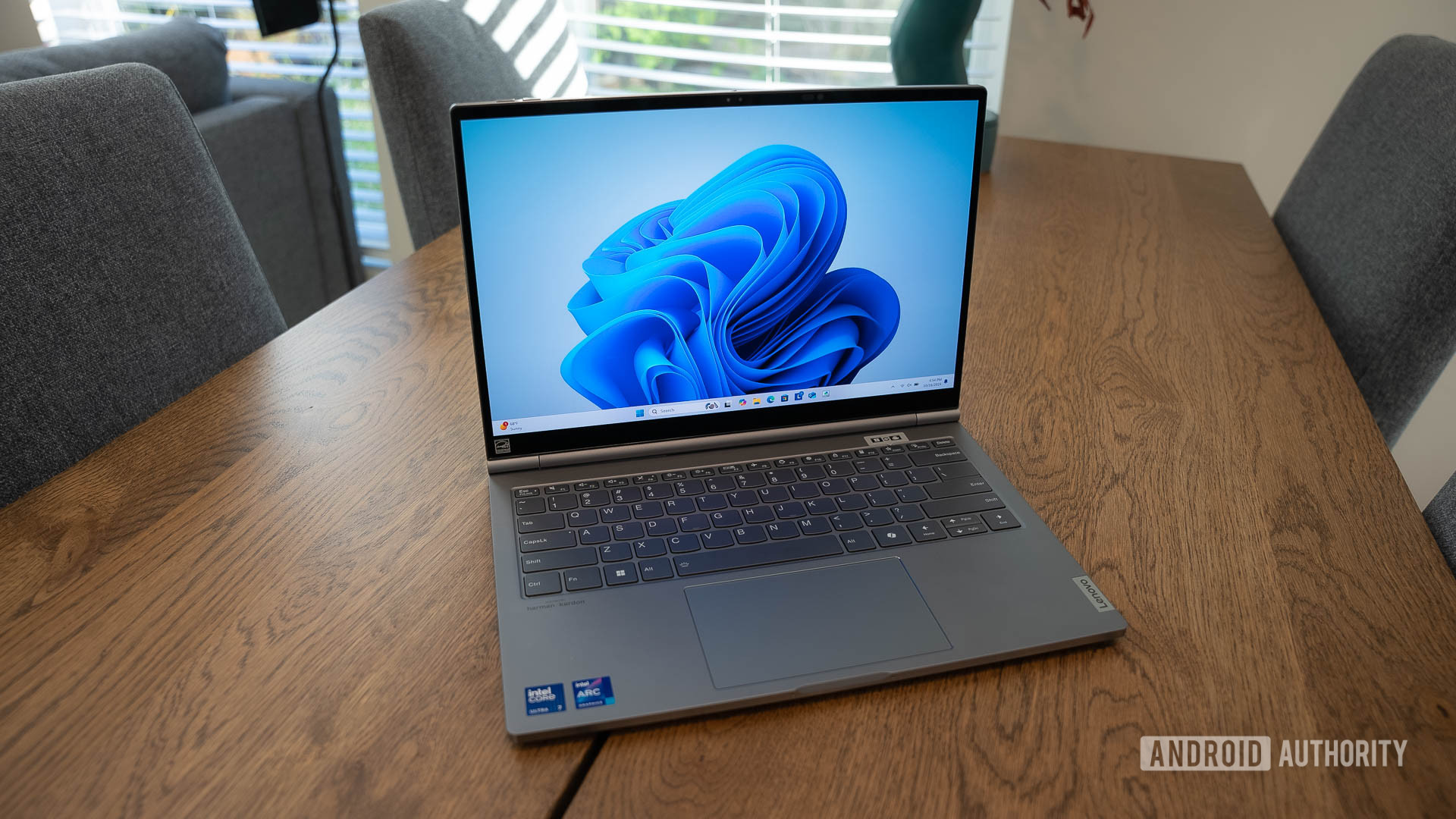




 English (US) ·
English (US) ·